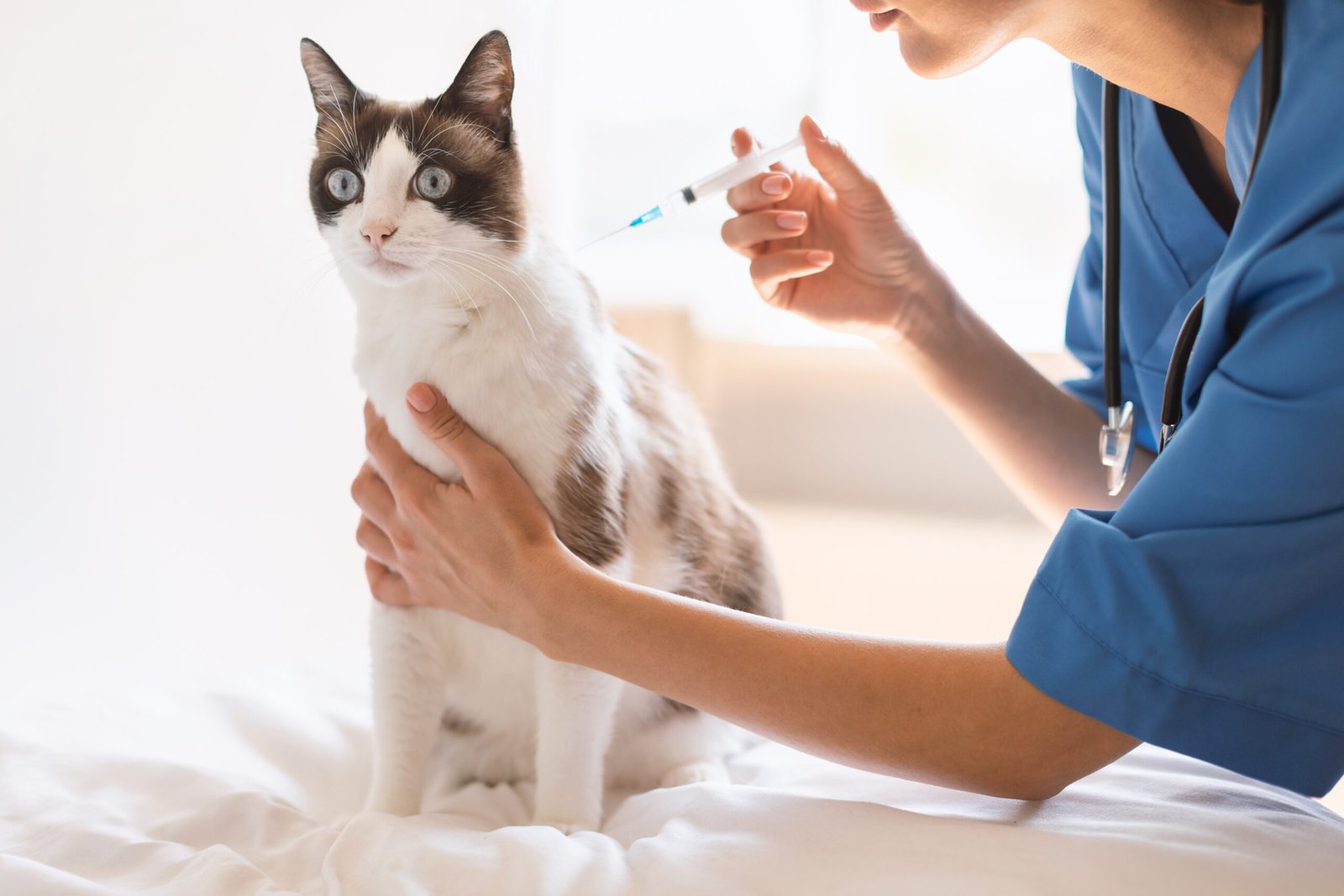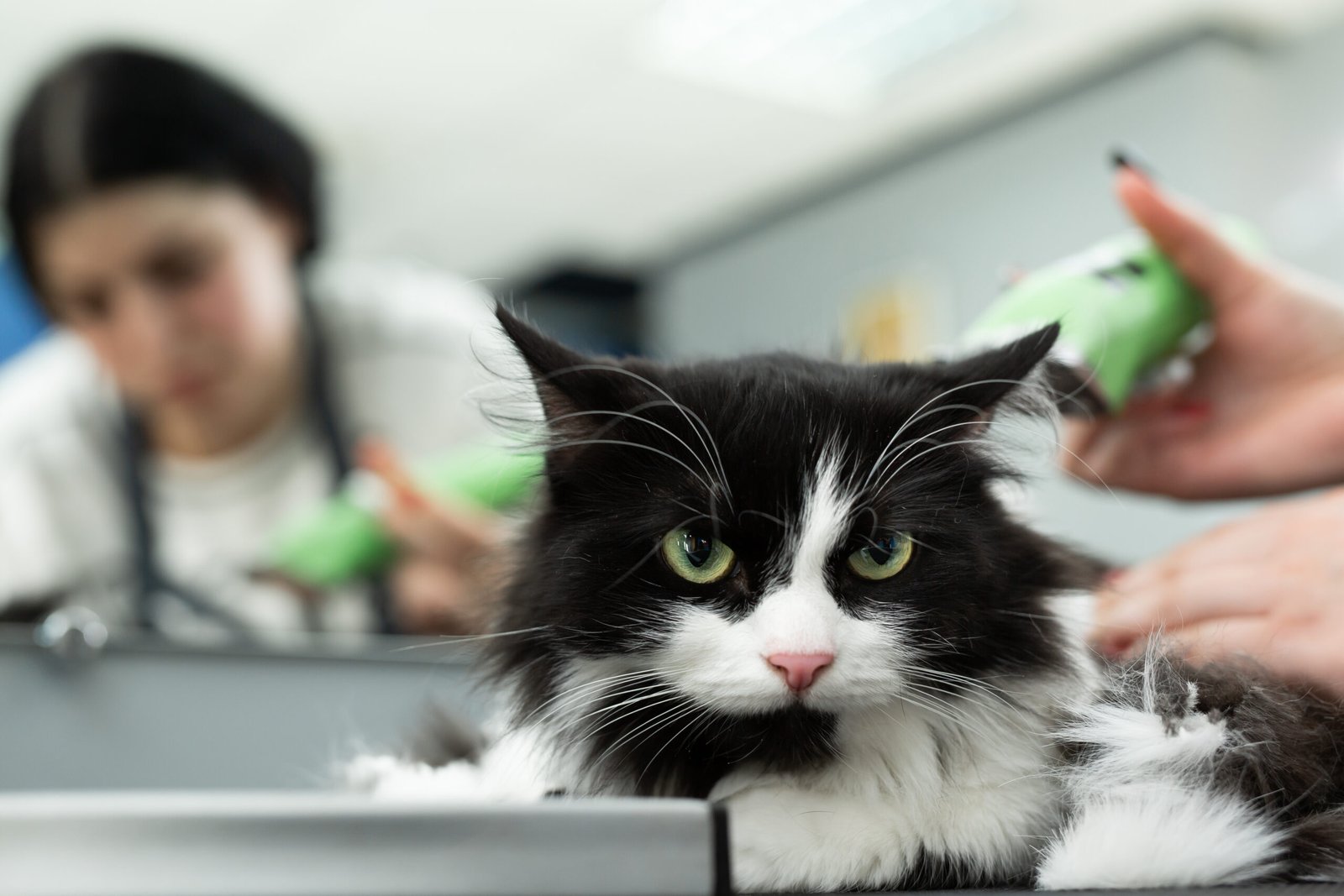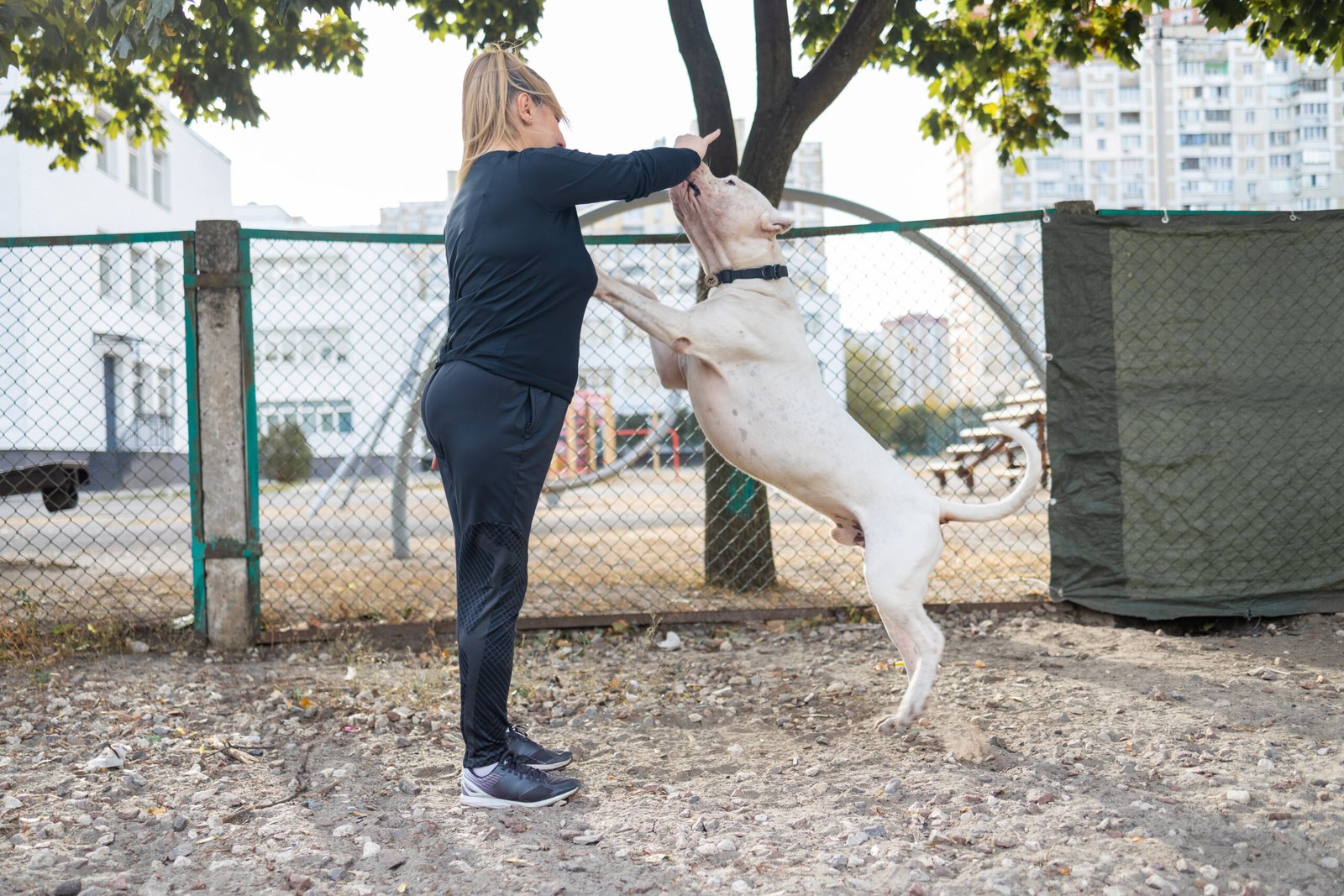Vaccinations are one of the most critical components of ensuring your pet’s health and longevity. Understanding your pet’s vaccination schedule is a vital part of responsible pet ownership, and mastering it can lead to a healthier, happier fur baby. It’s not just about sticking to a calendar; it’s about safeguarding your pet against dangerous diseases, promoting community health, and ensuring peace of mind for yourself as a pet owner. By navigating the world of pet vaccinations with knowledge and confidence, you can provide the best care for your beloved companions, ensuring they remain vibrant and disease-free throughout their lives.
Understanding Pet Vaccinations: What Your Pet Needs and When
Vaccinations play a crucial role in preventing diseases and securing long-term health and well-being for your pet. Core vaccines form the backbone of your pet’s health regimen; they are essential for all pets because they protect against highly contagious and severe diseases. These diseases can lead to lasting health issues and, in some cases, can be fatal. Non-core vaccines, however, are typically recommended based on various factors such as your pet’s lifestyle, environment, and specific risk factors they may encounter. Adhering to a vaccination schedule guided by your veterinarian is paramount to maintaining optimal immunity against various afflictions your pet might encounter in their lifetime. Regular booster shots ensure sustained efficacy of these vaccines, and they are most effective when given consistently and timely.
– Core vaccines for dogs: Distemper, Parvovirus, Adenovirus, Rabies.
– Core vaccines for cats: Feline Calicivirus, Feline Herpesvirus Type I, Feline Panleukopenia.
– Non-core vaccines determined by: Lifestyle, geographical location, specific exposure risks.
– Consult with a veterinarian to plan vaccination schedules tailored to individual needs.
By understanding what vaccinations your pet needs and maintaining a robust vaccination schedule, you’ll significantly reduce their risk of contracting dangerous diseases.
Importance of Pet Vaccinations
The importance of pet vaccinations cannot be overstated, as they enhance disease prevention by safeguarding pets from various serious and potentially fatal diseases. Vaccinations significantly improve a pet’s chances of living a long and healthy life. Moreover, they ensure community health by preventing the spread of contagious diseases within the pet community. This reciprocal protection means when more pets are vaccinated, the lower the incidence of widespread outbreaks. Furthermore, fulfilling legal requirements is a crucial consideration since many regions have laws mandating certain vaccinations, like rabies, to ensure public health safety and responsible pet ownership. Vaccinations are one of the most cost-effective healthcare measures available; they can prevent diseases that are far more expensive to manage. Lastly, vaccinations promote peace of mind, providing assurance for pet owners that their beloved companions are well protected.
– Protect from diseases: Prevents distemper, rabies, etc.
– Public health: Reduces potential for widespread disease outbreaks.
– Legal requirements: Rabies vaccine mandates in many regions.
– Cost-effective: Cheaper than treating diseases.
– Peace of mind: Assurance of protection.
Keeping your pet’s vaccinations up-to-date is integral not just to individual health but to the broader community as well.
Pro Tip: Stick to a Vaccination Schedule
Sticking to a vaccination schedule is paramount for maintaining your pet’s health and preventing a variety of diseases. Vaccinations are not just about keeping your pet safe; they also contribute significantly to the overall safety of other animals and humans they interact with. Partnering with your veterinarian ensures that your pet follows a tailored vaccination plan based on their age, breed, and lifestyle factors specific to their environment. Regularly updating vaccinations can prevent potential outbreaks and help avoid costly treatments down the line. Staying informed and proactive regarding your pet’s vaccination schedule is essential to their ongoing health and happiness.
– Vaccination schedules: Tailored to pet age, breed, lifestyle.
– Human/animal safety: Reduces risk of transmittable diseases.
– Cost prevention: Averts expensive disease treatments.
– Regular updates: Boost immunity effectively.
Being diligent about your pet’s vaccination schedule is an act of love, ensuring they lead a healthy and joyful life.
Essential Vaccination Schedule for Common Pets
| 🐾 Pet Type | 💉 Core Vaccines | 🧪 Non-Core Vaccines | 🕒 Recommended Schedule | ⚠️ Special Notes |
|---|---|---|---|---|
| 🐶 Dogs | Distemper, Parvovirus, Adenovirus, Rabies | Bordetella (Kennel Cough), Lyme, Leptospirosis | Core: Start at 6-8 weeks, boosters every 3-4 weeks until 16 weeks; Adult: Annually or triennial boosters | Avoid exposure to unknown dogs without core vaccines; consult vet for lifestyle-based non-core needs. |
| 🐱 Cats | Feline Calicivirus, Feline Herpesvirus, Panleukopenia, Rabies | Feline Leukemia (FeLV), FIV, Bordetella | Core: Begin at 8 weeks, boosters every 3-4 weeks; Adult: Boosters annually or triennially | Essential to keep indoor/outdoor cats updated on FeLV; consult vet for FIV based on exposure risks. |
| 🐰 Rabbits | Myxomatosis, Rabbit Hemorrhagic Disease Virus (RHDV) | None widely recognized; discuss with vet if needed | Start at 4 weeks, booster every 6-12 months, depending on risk | Vital for rabbits in outdoor areas; ensure no cross-contact with wild rabbits. |
| 🦜 Birds | Polyomavirus, Pacheco’s Disease | Avian Chlamydiosis, Pox (species-specific) | Based on species, generally initial dose with annual boosters | High risk for birds in multi-bird households or aviaries; consult avian vet for specialized vaccines. |
| 🐢 Reptiles | None essential (most vaccinations not applicable) | Consult vet for specific guidance | Rarely vaccinated; discuss with exotic pet specialist | Disease prevention largely relies on habitat hygiene; vaccinations uncommon but veterinary guidance advised. |
| 🐹 Small Rodents | Not typically vaccinated | None generally required; consult vet for advice | Consult vet if any vaccination protocol is recommended | Disease prevention through habitat hygiene and limited exposure to other animals. |
Core Vaccinations for Dogs
Core vaccinations for dogs serve as vital protection against highly contagious and potentially life-threatening diseases. These essential vaccines typically include protection against distemper, parvovirus, adenovirus, and rabies, forming the foundation of a robust vaccine regimen. Administering these vaccines is crucial not only for the well-being of puppies but also for adult dogs, as it ensures long-term health and immunity. Following a vet-recommended vaccination schedule enhances the effectiveness of these vaccines and upholds public health standards. To sustain immunity throughout a dog’s life, regular booster shots are necessary.
– Distemper: Affects respiratory, gastrointestinal systems.
– Parvovirus: Causes severe gastrointestinal distress.
– Adenovirus: Impacts liver, respiratory function.
– Rabies: Fatal, affects central nervous system.
– Follow vet schedules: Ensures correct timing, intervals.
By prioritizing core vaccinations for your dog, you effectively protect your furry friend from some of the most serious health threats they may encounter.
Non-Core Vaccinations for Dogs
Non-core vaccinations are optional vaccines administered based on a dog’s individual risk factors, such as lifestyle, geographic location, and their potential exposure to certain diseases. Unlike core vaccines, these are not universally required for all dogs, making their necessity dependent upon each pet’s unique circumstances. Common non-core vaccines include those for Bordetella, Lyme disease, and Leptospirosis, recommended for dogs likely exposed to these conditions through particular interactions or environments. Consulting with your veterinarian is essential to determine which non-core vaccines are appropriate for your dog, allowing you to create a tailored vaccination plan that fits their lifestyle.
– Bordetella: Kennel cough prevention.
– Lyme disease: For dogs in tick-prone areas.
– Leptospirosis: Contracts in water, soil in certain regions.
– Tailored vet plans: Assess individual risk factors.
Understanding and managing non-core vaccinations remains integral to ensuring your pet’s health and protecting them from unnecessary medical interventions.
Core Vaccinations for Cats
Core vaccinations for cats are indispensable for shielding them against common yet severe diseases. Key vaccines for cats include those for feline calicivirus, feline herpesvirus type I (rhinotracheitis), and feline panleukopenia, usually administered through a combination shot called the FVRCP vaccine. The core vaccination schedule typically begins when a kitten is around eight weeks old, with boosters given every three to four weeks until the kitten is about 16 weeks old. Regular booster shots play a crucial role in maintaining long-term immunity and safeguarding your cat’s health.
– Calicivirus: Respiratory infections, oral ulcerations.
– Herpesvirus: Causes eye infections, respiratory issues.
– Feline panleukopenia: Highly contagious, often fatal.
– FVRCP vaccine: Streamlines administration.
By adhering to a core vaccination schedule for your cat, you can significantly contribute to their enduring health and longevity.
Non-Core Vaccinations for Cats
Non-core vaccinations for cats are those recommended based on an individual’s lifestyle, geographical area, and specific risk factors. These are not part of the essential vaccination schedule but can be crucial in preventing certain diseases that might otherwise be caught within specific environments or circumstances. Common non-core vaccines for cats include those for feline leukemia virus (FeLV), feline immunodeficiency virus (FIV), and Bordetella. Veterinarians can assist cat owners in determining which non-core vaccines are necessary by conducting a thorough assessment of the cat’s health and environment.
– FeLV: Spread by close contact, can cause anemia.
– FIV: Similar to HIV in humans, often asymptomatic.
– Bordetella: Respiratory illness, highly contagious.
– Regular vet consultations: Determine non-core need.
By staying informed about non-core vaccinations, you can ensure your cat remains protected against specific potential health risks pertinent to their living situation.
What are the Essential Vaccines My Pet Needs?
Ensuring your pet receives essential vaccines protects them from common and severe diseases, contributing to their overall health and well-being. Core vaccines are recommended for all pets and typically include rabies, distemper, parvovirus, and adenovirus for dogs, alongside rabies, panleukopenia, calicivirus, and herpesvirus for cats. Depending on the pet’s lifestyle, regional factors, and risk of exposure, non-core vaccines may be required, such as the Bordetella vaccine for dogs in frequent social settings. Regular consultations with a veterinarian are crucial to determine the most appropriate vaccination plan tailored to your pet’s specific needs.
– Core vaccines for dogs: Distemper, parvovirus, rabies.
– Core vaccines for cats: Panleukopenia, calicivirus, herpesvirus.
– Non-core considerations: Based on lifestyle, exposure.
– Vet consultations: Tailor specific vaccine needs.
By ensuring your pet receives these essential vaccines, you can safeguard them against a host of preventable illnesses and maintain their health and happiness.
How Often Should My Pet Receive Vaccinations?
Vaccination frequency for pets often depends on several factors, including age, health status, lifestyle, and local regulations. Puppies and kittens typically require a series of vaccinations starting at 6-8 weeks, with boosters administered every 3-4 weeks until they reach around 16 weeks of age. Adult pets generally need booster shots annually or every three years, depending on the specific vaccine and individual risk factors. While core vaccines are necessary for all pets, non-core vaccines are given based on each pet’s unique risk assessments. Regular consultations with your veterinarian are vital to determine the best vaccination schedule tailored to your pet’s needs.
– Puppies/kittens: Start at 6-8 weeks, boosters until 16 weeks.
– Adult pets: Annual/triennial boosters as needed.
– Core vs. non-core: Risk-based vaccinations.
– Vet advice: Key for effective frequency management.
Ensuring your pet receives vaccinations at appropriate intervals is crucial for sustaining their immunity and promoting their long-term well-being.
Are There Different Vaccine Schedules for Different Types of Pets?
There are different vaccine schedules tailored specifically for various types of pets, such as dogs, cats, and rabbits, ensuring their unique health needs are met. Initial puppy and kitten vaccinations typically commence between six to eight weeks old, followed by essential booster shots every few weeks. Adult pets may require annual or triennial vaccinations, contingent on both vaccine type and the pet’s individual health status and risk factors. Meanwhile, exotic pets like birds or reptiles might have unique vaccination requirements that warrant discussion with a specialized veterinarian.
– Dogs/cats: Start early, regular boosters essential.
– Rabbits: Vaccine types differ, consult vet.
– Exotic pets: Birds/reptiles require specialized care.
– Specialized vet care: Essential for non-standard pets.
By collaborating with your veterinarian, you can ensure your pet receives the appropriate vaccines at the right times to maintain optimal health.
What are the Signs That My Pet Might Be Having a Reaction to a Vaccine?
When pets receive vaccinations, it’s crucial to monitor them for any signs of adverse reactions, which may vary from mild to severe. Common mild reactions include localized swelling or tenderness at the injection site. Owners should stay alert for moderate signs like fever, decreased appetite, or lethargy, which could indicate that your pet is experiencing a reaction. Severe symptoms warranting immediate veterinary attention include persistent vomiting, diarrhea, difficulty breathing, or facial swelling. Any unusual behavior or symptoms that persist beyond 48 hours may require a follow-up visit to your vet.
– Mild reactions: Swelling, tenderness at injection site.
– Moderate symptoms: Fever, decreased appetite, lethargy.
– Severe signs: Vomiting, diarrhea, breathing difficulty.
– Persistent issues: Follow-up with vet as needed.
Consulting your veterinarian about any concerns ensures your pet’s health and safety after vaccination, providing peace of mind.
Why is it important to stick to the recommended vaccination schedule?
Understanding the significance of following the recommended vaccination schedule involves recognizing its role in safeguarding public health by preventing the outbreak and spread of infectious diseases. Vaccines are meticulously researched and scheduled to offer optimal protection at specific times in a child’s growth and an adult’s ongoing health maintenance. Here are some key reasons why sticking to this schedule is crucial:
1. Maximizing Immunity
The vaccination schedule is strategically designed to provide immunity at the earliest possible age when individuals are most vulnerable to specific diseases. These recommendations are based on years of scientific research, clinical trials, and epidemiological data. By adhering to this schedule, individuals are better protected during critical periods, thereby reducing the risk of contracting harmful diseases.
2. Community Immunity (Herd Immunity)
Vaccination doesn’t just protect the individual; it helps protect the entire community, including those who cannot be vaccinated due to medical conditions such as allergies or compromised immune systems. When a significant portion of the population is immunized, the spread of contagious diseases is minimized, which helps to protect vulnerable individuals from possible infection.
3. Disease Elimination and Eradication
By sticking to the recommended vaccination schedule, communities can control and sometimes eradicate diseases. For example, widespread vaccination has led to the eradication of smallpox. Following the vaccination schedule is essential for continuing these efforts, as it ensures diseases like measles, polio, and rubella remain under control or are completely eradicated.
4. Reducing the Risk of Complications
Vaccinations are timed to protect individuals when they are at the highest risk of severe complications from specific illnesses. For example, infants are particularly vulnerable to diseases like whooping cough and can suffer severe complications if infected. By vaccinating them according to the schedule, the potential for serious health issues is significantly diminished.
5. Economic Benefits
Sticking to the vaccination schedule also provides economic advantages by reducing healthcare costs associated with treating preventable diseases, hospital stays, and long-term disability care. Prevention through vaccination helps lessen the burden on healthcare systems and reduces economic loss due to missed days at school or work.
6. Trust in Public Health Systems
Following the recommended schedule fosters public confidence in health systems and medical advice. It demonstrates a collective trust in scientific research and the healthcare professionals who interpret this research to devise immunization schedules. This trust is crucial for maintaining high immunization rates and ensuring the overall effectiveness of vaccination programs.
7. Protective Benefits Beyond Childhood
While the focus is often on childhood immunizations, maintaining vaccination schedules throughout adulthood is equally important. Booster shots and vaccinations tailored for adults, such as those for influenza or shingles, are integral to continuing personal and community protection over a lifetime.
In summary, adhering to the recommended vaccination schedule is a simple yet profound action that protects not only individuals but entire communities. It ensures collective health security and fosters public trust.
Navigating Pet Vaccinations with Confidence
Understanding your pet’s vaccination schedule is not just a task—it’s a commitment to their lifelong health and joy. By mastering this aspect of pet care, you empower yourself to make informed decisions that keep your furry friends healthy and happy. Whether maintaining routine booster schedules with your veterinarian or deciding on non-core vaccinations based on lifestyle, these proactive measures firmly place your pet’s well-being as a top priority. With knowledge and responsiveness, you create a safe, illness-free environment for your pet and their companions. Ultimately, taking charge of your pet’s vaccination schedule reflects the love and dedication you have for ensuring their brightest future.








